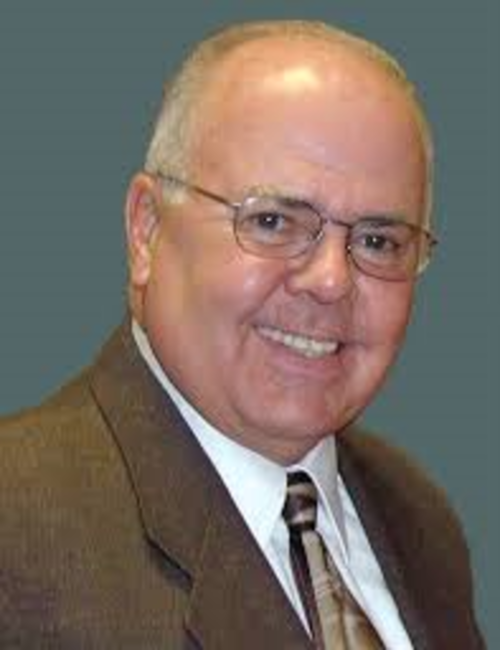 “There was a man sent from God, whose name was John. The same came for a witness, to bear witness of the Light, that all men through him might believe. He was not that Light, but was sent to bear witness of that Light. That was the true Light, which lighteth every man that cometh into the world. He was in the world, and the world was made by him, and the world knew him not. He came unto his own, and his own received him not. But as many as received him, to them gave he power to become the sons of God, even to them that believe on his name.” John 1:6-112
“There was a man sent from God, whose name was John. The same came for a witness, to bear witness of the Light, that all men through him might believe. He was not that Light, but was sent to bear witness of that Light. That was the true Light, which lighteth every man that cometh into the world. He was in the world, and the world was made by him, and the world knew him not. He came unto his own, and his own received him not. But as many as received him, to them gave he power to become the sons of God, even to them that believe on his name.” John 1:6-112
I have a difficult assignment today.
I am asked to preach about a prince of preachers. My impossible mission is to unravel the heart of a missionary; to trace the profile of a prophet; to describe with words a minister whose ministry transcended words; to shine a light on a life who outshined us all; to capture the essence of a mortal who trafficked in immortality. And as lofty as these sentences seem to be, I promise you that they fall far short of the reality of the man who lies in state before us here today.
Preacher, evangelist, missionary, pastor, apostle, prophet, teacher, prayer warrior, official, mentor, sage, husband, father, grandfather, friend, benefactor, church planter, student of the Bible, relentless witness, marriage counselor, comedian, clown, mimic, prize fighter, tour guide, shoe polisher, painter, horticulturalist, lapidarian (jeweler), golfer and gofer, brickie, Yankee’s fan, chess player, inventor of words, composer of strange songs, linguist (of sorts), dubber of nicknames; aficionado of wristwatches; fully alive and enthralled with life; lover of everybody and everything … and (I have to stop somewhere) in short, there was a man sent from God whose name was Scotty Teets.
There was a PREACHER sent from God. Scotty Teets was first and foremost a preacher. He saw sermons where others saw monotonous paragraphs. He could preach about kings and queens in one breath, and rats and mangy dogs in the next. He could take one scripture out of an obscure chapter and make the entire Bible revolve around it. He clarified the ambiguous, set whole congregations on fire, revived the spiritually dead and scared the living daylights out of hypocrites. He preached hell hot, eternity long, the Bible true, miracles real, Jesus Christ king, the new birth mandatory, and loving God the be all and end all of life. Scotty made you laugh before he made you cry, he could make you mad on the way to making you glad, and he could take you apart in one instant and then quickly build you back up so thoroughly that you wouldn’t even recognize yourself.
Scotty preached with uncommon anointing. His signature fiery delivery woke you up, his impassioned pleas drew you out of your seat, and the sincerity of his raspy voice birthed faith anew in your heart. To call Scotty Teets a mere preacher is to call Mother Theresa a nice lady, or Michael Jordan a pretty good athlete. Set it in bold, capital letters and flashing neon lights, Scotty Teets was a PREACHER!
There was a PROPHET sent from God. Scotty Teets possessed the ministry of a prophet. The prophets were God’s blowtorches of the Old Testament, Jehovah’s remembrancers. Rough, fearless, sometimes uncouth, they shouted the divine displeasure with Israel from the mountaintops. They spared nobody—kings, queens, princes, priests—and left no stone unturned in their quest for righteousness.
The prophets rained on the effete parades. They were the bulls in the privileged classes’ china closets, the worms in the polished apples, the cockroaches crawling into the laps of luxury. They crashed parties, tore down altars to false gods and pointed their fingers in the faces of Israel’s evil leaders. They angered, affronted, cajoled and rebuked. They were rarely invited, often snubbed, mostly persecuted and sometimes slain. They took their orders from God alone. They were the screaming headlines of heaven’s daily news.
Yet, with the advent of the New Testament, this vital ministry did not vanish. With the passing of the Old Covenant and the introduction of the New, God made sure that the role of the prophet was not lost. “Which in other ages was not made known unto the sons of men, as it is now revealed unto his holy apostles and prophets by the Spirit.” Ephesians 3:5. “And he gave some, apostles; and some, prophets; and some, evangelists; and some, pastors and teachers.” Ephesians 4:11. Now, we are more likely to call prophets preachers, and they have different roles, but the ministry of prophet to disturb and stir the waters is a part of preaching.
Scotty Teets was:
- an Isaiah, the Messianic Prophet
- a Jeremiah, the weeping prophet
- an Ezekiel, the fearless prophet
- a Daniel, the discerning prophet
- an Hosea, the prophet who condemned sin
- a Joel, the prophet of Pentecost
- an Amos, the fiery prophet
- an Obadiah, the warning prophet
- a Jonah, the judgment prophet
- a Micah, the merciful prophet
- a Nahum, the furious prophet
- a Habakkuk, the revival prophet
- a Zephaniah, the rebuking prophet
- a Haggai, the reasoning prophet
- a Zechariah, the caring prophet
- a Malachi, the loving prophet
We can never censor the voices of the prophets among us. When we grow comfortable in our insular world, when we blunt the edge of our spiritual and moral conscience, when we distance ourselves from the presence of God, when we lapse into tolerance of evil, we must always expect the voice of a prophet to jar our collective senses. Never resent it. It is the voice that saves us from ourselves.
There was a PASTOR sent from God. Most of us knew Scotty Teets the preacher and the prophet, the voice from the pulpit, but there are many of you who knew him as Pastor in one-on-one situations. You knew his kindness, you knew that this pastor who hated sin without compromise loved the sinner unconditionally. He may have paid your bus fare, your electric bill, bought you a new suit or a new Bible. He jived with the brothers, joked in Creole with Caribbean natives, kibitzed with the Jews, yelled yallah with the Saudis, and laced up in proper English with the Jamaicans. Scotty was white, black, brown, yellow, red, rich, poor, young, old, and a mixture of all of these—whatever he had to be to identify with you. He was comfortable with the professionals of the Upper East Side, the blue-collar workers of Queens and Brooklyn, or the impoverished in the Bronx.
It is my assessment that the greatest characteristic of Scotty Teets, the one feature that towered above all others was his complete lack of prejudice. One of his favorite go-to passages was: Acts 17:24-26 (KJV)
“God that made the world and all things therein, seeing that he is Lord of heaven and earth, dwelleth not in temples made with hands; Neither is worshipped with men’s hands, as though he needed anything, seeing he giveth to all life, and breath, and all things; And hath made of one blood all nations of men for to dwell on all the face of the earth…”
For me, my brother-in-law, Scotty and I were as close as brothers. My uncle, Paul Jordan, was his pastor, and my father, Victor Jordan, was his father-in-law. Scotty was my mentor, role model, resource of Scriptural knowledge, confidante, fellow-laborer and encourager. He opened many doors for me as I started my ministry, especially in Ohio. Anywhere I went in UPCI circles, all I had to do was mention that he was my brother-in-law and I was in.
Jonathan, your father loved and respected you. He was so proud of your successes in the world of computers. He didn’t understand much of what you do, but he knew enough to be extremely proud of your intellect, your drive to continually improve yourself, and your advanced status.
Anthony, your academic achievements were a source of great pride for your Dad. But beyond that, you inherited so much of him—your looks, your personality, your wit, your penchant for the language arts, your fascination with culture, and the way you love and value other people. Oh yes, and your love for food!
Jennifer, take all of your Dad’s compassion, love, sensitivity, spirituality, integrity and loyalty, distill it and pour it out, and we would find the very definition of who you are—except maybe slightly sweeter. You shared his passion for the ministry and the mission field, and the shadow of his devotion to and love for his God fell on you.
Julie—or should I say, “Julie Boolie,”—you were the perfect completion of Scotty Teets offspring. You came along when he might have thought you were born out of due season, but you became exactly what he needed. You made him laugh. You understood and often reflected his craziness, his unpredictability, his tossed salad of word usage, and his heart swelled with pride when he heard you sing.
Henry and David, you were much more than sons-in-law. Thank you for taking care of him when he needed a helping hand. You know Pops loved you enough to give his daughters’ hand to you in marriage—although he did threaten to do physical harm to you if you ever hurt them.
Jenny, I remember that dark-haired, broad-smiling, fiery-preaching young man who came to Jackson fifty-six years ago. He always told me that the first time he walked into the kitchen and saw you, he told himself, “I’m going to marry that girl!” And he did. You shared the ups and downs of his ministry in Iron Mountain, Adrian, Mt. Vernon, Uruguay, Jackson, and New York City, and stints of evangelism in between. His trust in you, his reliance on you, and his confidence in you was surpassed only by his love for you. You complemented him in his ministry, and no one knew that better than he. He was your biggest fan, greatest admirer, and his only true love for his entire life.
Andrés, Mark, Michael, Phoebe, Angelica, Gwendolyn, Victor, you brought great joy to your Papa’s life. He held you, danced with you, sang to you, laughed with you and told you stories, many of which were actually true! Oh, what a grandfather you had! He will be a legend to many, but he was your Papa!
And, to all of you who looked to Scotty Teets as Pastor, Bishop, or “Pops,” he instilled something in you that will never die. Nurture that love for souls, love for truth and love for God that you gleaned from this great man. When you experience difficult times, reach back into that arsenal and retrieve those weapons crafted and carefully placed in your heart by the man you were privileged to call pastor.
Last Sunday afternoon was the final roll call down here for Bishop Teets. It marked the end of a journey that took several years. It was as though there was too much of him to take him all at once. So, we saw him leave a little bit at a time. There was less of him for us to savor, but we got to enjoy his uniqueness right up until the final hours.
For I am now ready to be offered, and the time of my departure is at hand. I have fought a good fight, I have finished my course, I have kept the faith: Henceforth there is laid up for me a crown of righteousness, which the Lord, the righteous judge, shall give me at that day: and not to me only, but unto all them also that love his appearing.” 2 Timothy 4:6-8 (KJV)
And now, the scene before you today, a casket with the earthly remains of your Bishop, flowers and a sanctuary of mourners is not what he sees. He’s among the sanctified millions at the roll call of believers. I take you to Revelation 5:9-12,
And they sung a new song, saying, Thou art worthy to take the book, and to open the seals thereof: for thou wast slain, and hast redeemed us to God by thy blood out of every kindred, and tongue, and people, and nation; And hast made us unto our God kings and priests: and we shall reign on the earth. And I beheld, and I heard the voice of many angels round about the throne and the beasts and the elders: and the number of them was ten thousand times ten thousand, and thousands of thousands; Saying with a loud voice, Worthy is the Lamb that was slain to receive power, and riches, and wisdom, and strength, and honour, and glory, and blessing.”
Farewell, Bishop Scotty Teets. You were a great servant of the Lord. You were loved. You’ve given us all one more reason to go to heaven.
Scotty, I will meet you in the morning!
Let us pray.
 Wednesday, April 17, 2019 at 03:23PM
Wednesday, April 17, 2019 at 03:23PM  I get it.
I get it.
 Duke Blue Devils, or all other teams with the word “devil” in their names. It is highly offensive to me to honor the symbol of evil.
Duke Blue Devils, or all other teams with the word “devil” in their names. It is highly offensive to me to honor the symbol of evil.




